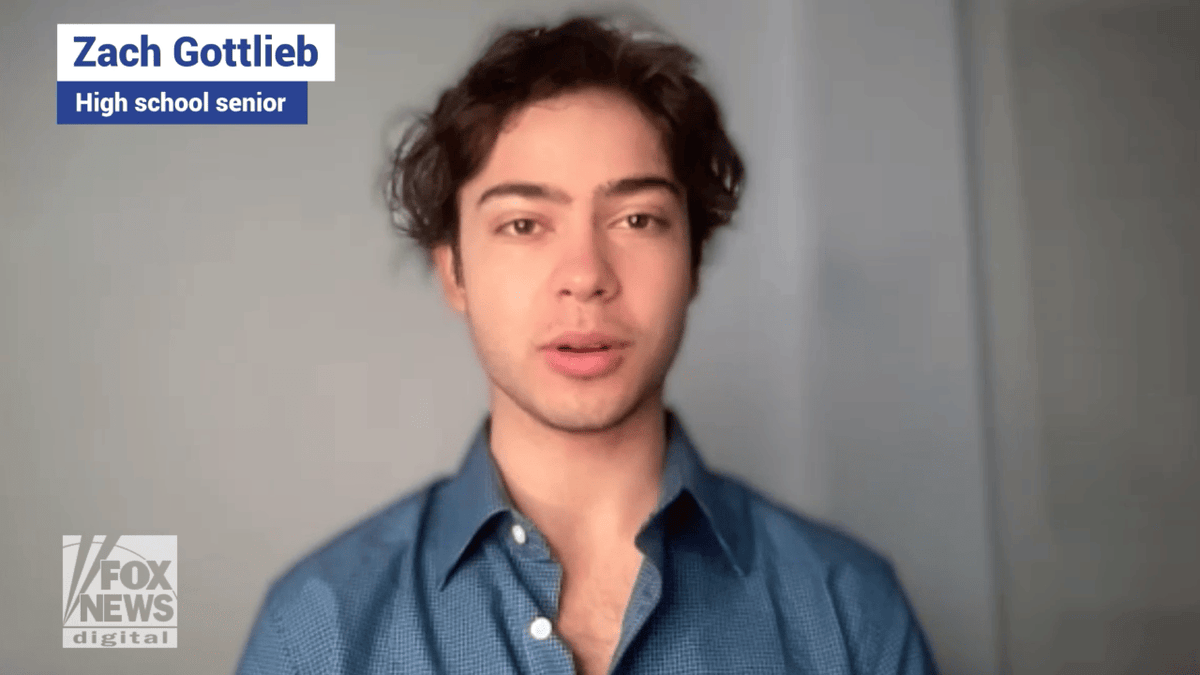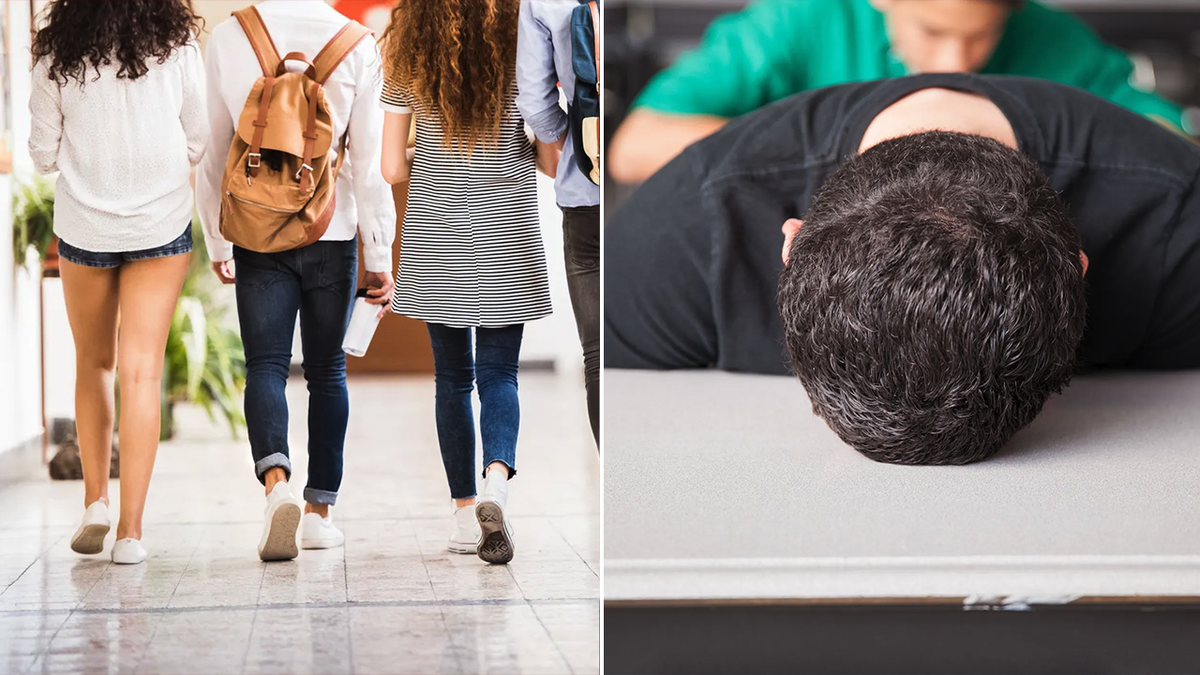High school senior speaks out against 'cancel culture': 'Like walking over landmines'
Zach Gottlieb, a high school senior based in Los Angeles, is speaking out against cancel culture and its prevalence in the classroom and among young people.
Zach Gottlieb is 18 years old, a high school senior and the founder of Talk with Zach, a Gen Z wellness platform. But he chose to tackle a different problem in a recent op-ed for The Los Angeles Times: cancel culture.
"The op-ed I wrote is all about how polarized our society is and also how the culture has inculcated this sort of censorship onto younger generations [and] older generations as well," Gottlieb told Fox News Digital, "But I think it's different when you're growing up in a society where a lot of what you say you feel can be censored and can be taken out of context and can reflect negatively on you."
Gottlieb said he was shocked to receive only positive feedback after his op-ed was published.
"I got so many emails [after] this op-ed and I don't think a single one was negative, which is just insanely good to hear. And I think the reason that is is because I'm not blaming, I'm not slamming people who are banning things like hate speech or something like that or anything that's out of proportion and actually hurts people."
ALMOST 1 IN 10 COLLEGE STUDENTS THREATENED WITH PUNISHMENT FOR THEIR SPEECH: STUDY

Zach Gottlieb is 18 years old, a high school senior and the founder of Talk with Zach, a Gen Z wellness platform. But he chose to tackle a different problem in a recent op-ed for The Los Angeles Times: cancel culture. (Fox News)
"What I'm saying is we need to have conversations where people can disagree and disagree politely and disagree respectfully and move the conversation forward. And I think that is so refreshing to hear," Gottlieb said.
When asked what empowers cancel culture, Gottlieb said "it's definitely a societal thing," adding that teachers at school are actually quite supportive of open discussion.
"I think the teachers actually are encouraging us to disagree and bring up all these topics, but it's more the culture that limits us," he said. "And when we hear from society that only certain messages are accepted, it's like we're walking over landmines. If you just look at any contentious topic on social media, you will find people in the comments arguing."
What Gottlieb says he rarely sees is people online actually asking to hear the perspective of others. Instead of asking others to "tell me about your perspective," the view is more that "if I'm right, you're wrong. And if you're wrong, I'm going to try to cancel you because I think that you shouldn't be able to get your voice out there. That's what cancel culture is.
"It's when a lot of people gang up on one person because of their ideology, and essentially exile them from society and make them unable to be credible and take away whatever status they have."
As for the students, Gottlieb said that they "mainly" want to participate in open discussion, but they live under fear that someone will "repeat something they said" and share their views on social media.
"This is high school, right? At such a young age, anything you say can be taken out of context," he said.
"We just don't know if maybe we'll piss off a teacher or an administrator. Even though they encourage this very open dialog where they want us to disagree, I think there's just so much worry about what you say might offend someone."

When asked what empowers cancel culture, Gottlieb said "it's definitely a societal thing," adding that teachers at school are actually quite supportive of open discussion. (iStock)
Gottlieb restated a piece of advice he gave in his op-ed: "Just because you're offended doesn't mean it's offensive."
"I think people need to take that to heart because a lot of times you can say something and disagree with someone, but if you do it politely and if you do it in a manner that isn't attacking them, but just trying to learn more about what they have to say while also sharing your experience, I think that can lead to really rich dialog."
When asked how students can realistically be expected to learn how to have respectful discussions with other people, Gottlieb said that it is extremely difficult for young people to find groups where they can speak freely. One way that the culture of self-censorship changes, Gottlieb said, is that people need to stop attacking others.
"I think people need to stop attacking others. It's so polarized that everyone is so defensive and when you're defensive you just go into attack mode. But I wish people would say, ‘tell me about that,' ‘why do you think that,’ instead of 'that's wrong' or ‘my view is better,’ because as soon as you invalidate someone or you cancel them, nothing is going to come of that conversation."
ALMOST 1 IN 10 COLLEGE STUDENTS THREATENED WITH PUNISHMENT FOR THEIR SPEECH: STUDY
"I feel like cancel culture is so ineffective because if you cancel someone for their views, all that's going to accomplish is it's going to make that person loathe the people that canceled them. They're going to be set more strongly in their beliefs. They're not going to understand any nuance. And I think it exacerbates the issue."
"My last piece of advice is that I wish the next time someone says something that you don't necessarily agree with or doesn't really align with your values — if you could just ask them about it, if you could be curious rather than critical, I think that makes all the difference," Gottlieb said.
"And if you learn something from that conversation, you don't have to agree with them, either. And you don't have to change your beliefs. You just have to be open to letting your mind be changed," he added.





















